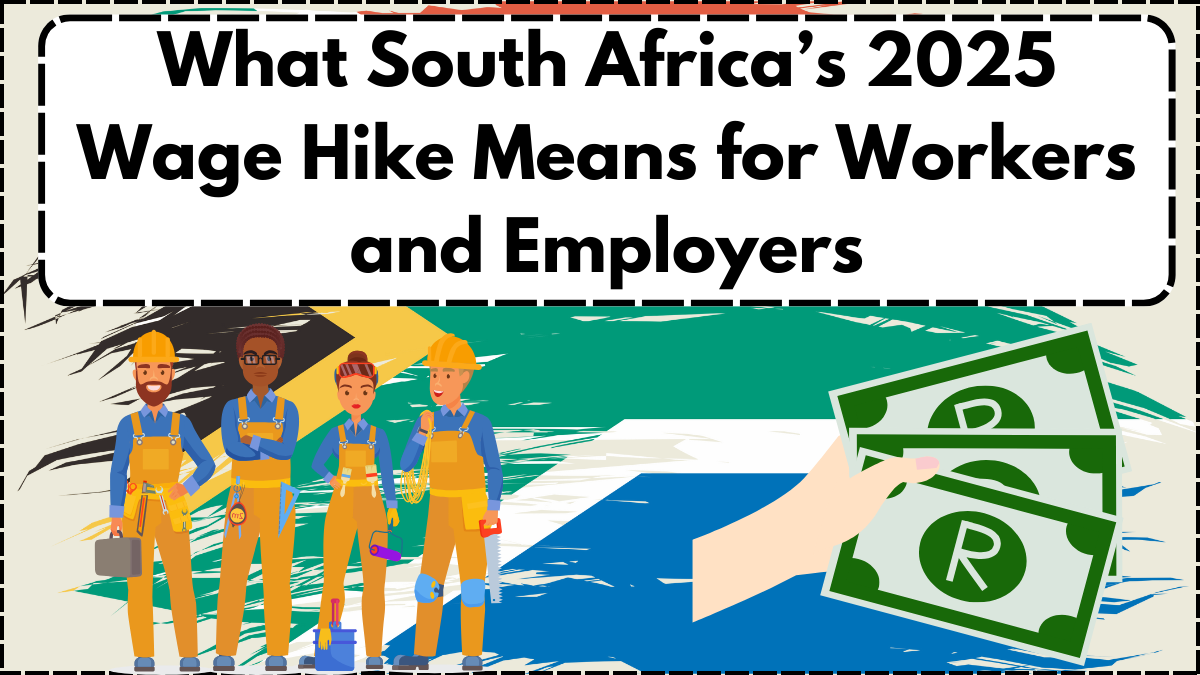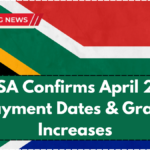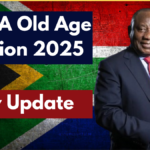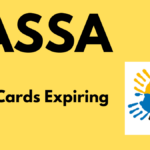In a bold move to narrow income inequality and respond to rising living costs, the South African government has confirmed wide-ranging wage increases for 2025. These changes affect not only the national minimum wage but also salaries in the public sector and various employee benefits across industries. With the implementation starting in March and April 2025, this initiative aims to provide financial relief, incentivize skilled labor retention, and improve workforce morale across both public and private sectors.
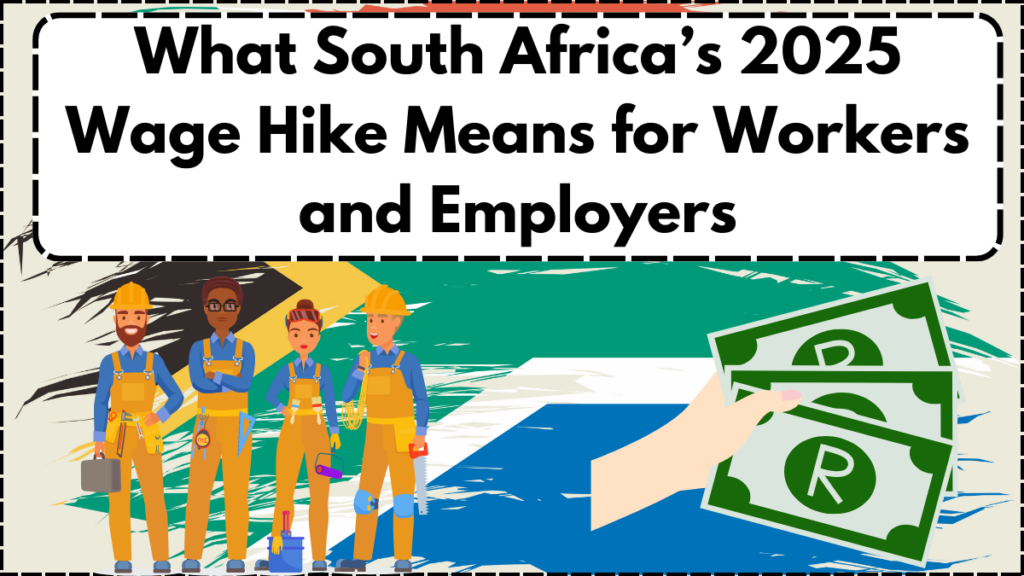
Overview of the 2025 National Minimum Wage Increase
Starting March 1, 2025, the national minimum wage will rise by 4.4%, from R27.58 to R28.79 per hour. This revision ensures that South Africa’s lowest-paid workers receive better compensation amid ongoing economic pressures. At the current exchange rate, this equates to approximately $1.55 USD per hour. While modest in percentage, this increase represents a meaningful step toward reducing wage stagnation and addressing the real cost of living in urban and rural areas alike.
Revised Public Sector Salaries
Effective April 2025, public sector workers—including nurses, teachers, law enforcement officers, and administrative professionals—will receive a 5.5% salary increase. This wage bump follows intensive union negotiations aimed at strengthening the public sector workforce, curbing turnover, and improving service delivery in education, healthcare, and law enforcement.
Expanded Allowances for Public Sector Employees
The 2025 wage reform also includes critical changes to worker allowances:
| Allowance Type | Old Rate | New Rate (April 2025) | Next Review |
|---|---|---|---|
| Housing Allowance | R1,784 | R1,900 | July 2025 |
| Standard Danger Allowance | R597 | R650 | July 2025 |
| Special Danger (Police) | R849 | R920 | July 2025 |
| Transport Allowance | Variable | Under Review | July 2025 (Fuel-Based) |
These adjustments reflect rising housing and transport costs, along with the risks faced by frontline workers, especially in law enforcement and healthcare.
Private Sector Wage Adjustments by Industry
Wage increases in the private sector will follow a more flexible model, often tied to collective bargaining agreements and inflation-linked negotiations. For example:
-
Mining Sector: Sibanye Stillwater has implemented a 5.5% increase for skilled workers and an additional R900 per month for lower-paid staff.
-
Retail & Hospitality: Adjustments are being calculated based on the Consumer Price Index (CPI) and pending union agreements.
-
Service Industry: Employers are expected to follow a staggered implementation plan, with some increases effective between March and June 2025.
These changes aim to protect worker purchasing power while considering sector-specific economic conditions.
Timeline for Implementation
The timing for wage implementation is structured to align with fiscal planning and payroll systems across sectors:
-
Minimum wage: Effective March 1, 2025
-
Public sector salary increase: Reflected in April 2025 paychecks
-
Allowances adjustments: Begin in April, with reviews in July 2025
-
Private sector adjustments: Rolled out between March and June 2025, depending on internal agreements
Employers are expected to communicate timelines clearly to avoid confusion or compliance issues.
Economic Impact: Balancing Growth and Affordability
Experts forecast that the wage increases could inject significant energy into the South African economy. Consumer spending is expected to rise, potentially contributing to a 1.2% increase in GDP for 2025. However, concerns persist around affordability for small and medium enterprises (SMEs), especially those operating on thin margins.
To address this, policymakers are evaluating phased adoption plans and possible subsidy frameworks to help businesses comply without resorting to layoffs.
How to Confirm If the Increase Applies to You
Employees unsure of their eligibility should take the following steps:
-
Consult HR departments or employers directly for payroll updates.
-
Union members should check with their representatives regarding new agreements.
-
Monitor official government channels for verified updates and announcements.
-
Review company memos or internal communications regarding wage adjustments.
The Bigger Picture: A Strategic Move Toward Wage Equity
This 2025 wage reform strategy highlights the South African government’s ongoing effort to reduce inequality, attract skilled talent, and stimulate economic activity through responsible wage management. While challenges in implementation remain, especially in resource-constrained sectors, the broader impact is expected to be positive for millions of workers across the country.
Conclusion
The 2025 wage increases represent more than just an economic adjustment—they signal a national push toward equitable pay and better working conditions. Whether you’re in the public or private sector, these changes are set to have a meaningful impact on financial wellbeing, job satisfaction, and labor market competitiveness. As implementation progresses, staying informed and engaged will be essential for both employers and employees alike.
FAQs
What is the new national minimum wage in South Africa as of 2025?
The national minimum wage will be R28.79 per hour, effective from March 1, 2025, marking a 4.4% increase from the previous R27.58.
When will public sector workers receive their salary increase?
Public sector employees will see the 5.5% salary increase reflected in their April 2025 paychecks.
Are transport and housing allowances increasing?
Yes. Housing allowances are rising to R1,900, while transport allowances will be reviewed mid-year to align with fuel prices.
Will private sector workers also get wage increases?
Yes, but rates vary by industry. Sectors like mining, retail, and hospitality are negotiating wages based on inflation and collective agreements.
How can I confirm if I’m eligible for a wage increase?
Speak with your HR department or union representative. You can also check official government sources for announcements relevant to your role or industry.
For More Information Click Here
Pari is a passionate writer known for captivating stories that blend imagination and reality. Inspired by travel, history, and everyday moments, Pari crafts narratives that resonate deeply with readers.
